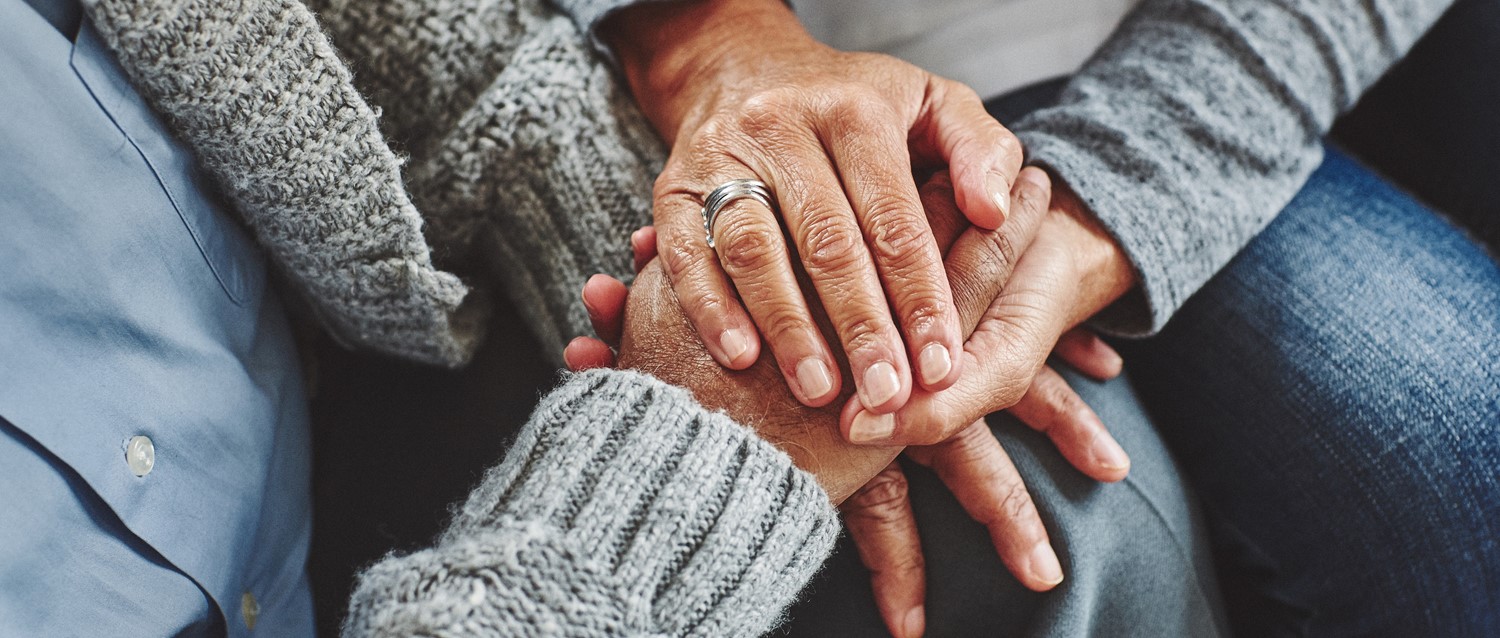
What not to say to someone who is dying
Peer reviewed by Dr Sarah Jarvis MBE, FRCGPLast updated by Gillian HarveyLast updated 24 May 2018
Meets Patient’s editorial guidelines
- DownloadDownload
- Share
- Language
- Discussion
If a friend or family member is given a terminal diagnosis, it's natural to want to support them. But many of us are scared of saying the wrong thing. We look at potential pitfalls.
In this article:
Video picks for End of life care
Don't ask 'How are you?'
For most of us, asking someone how they're feeling is a natural conversation opener, and we probably don't even think about the significance of the words. But asking this question when someone is seriously ill can cause undue stress.
"'How are you?' is one of the worst possible questions to ask when someone has been given a life-limiting prognosis," explains end of life doula Anna Lyons, from LifeDeathWhatever. "Instead ask: 'How are you feeling today?' This helps the patient to focus on the moment. It's much more helpful and enables you to ask how they are without asking a big open-ended question."
"Starting by asking questions about how they are feeling, will perhaps give you an idea of how open they want to be, and what they want to talk about," agrees Glyn Thomas, a palliative care social worker at the Marie Curie Hospice Hampstead.
Don't just focus on their illness
Back to contentsPeople living with a terminal diagnosis can sometimes feel as if the person they were before has been completely swallowed by their illness. Whilst it might be appropriate to talk about their health at times, many patients report simply wanting to be treated normally.
"Illness can make people feel very institutionalised and removed from everyday life; therefore discussing what is happening in the real world is often a good thing and makes people feel part of things," explains Thomas.
"It's important to allow the person who's unwell to control and dictate the conversation. Let them know you are there for them and willing to talk about anything but it's in their hands. When you're unwell, so much control is removed from your world: you're told what to do, when to eat. You need to try to maintain a sense of control in aspects of your life and one way is that you choose when to talk about the illness. And if someone says don't, then don't!" adds Lyons.
Continue reading below
Don't make assumptions
Back to contentsIf you're planning a gathering, or a trip out, it might be natural to assume that someone with a severe illness won't be up to joining in. But cutting someone out of the friendship loop is not the answer.
"Being unwell can be very isolating. Friends tend to stop inviting you to stuff and I would say, even if someone isn't well enough, carry on including them; try to find ways that they can be a part of things. Treat them as a human not just an illness," says Lyons.
Don't describe them as 'dying'
Back to contentsOnce someone has been given a terminal diagnosis, it's natural to think of them as 'dying'. But in fact, it's important to remember that whilst the person's time might be limited, they are still very much alive.
"We should stop using the word 'dying'. Because you're only dying right at the last moment - until that, you're living with a life-limiting illness. There are things terminally ill people want to do. There's always a way," says Lyons.
Continue reading below
Don't wait for them to ask
Back to contentsA person with a terminal diagnosis and those caring for them will naturally need a lot of support. But unspecific offers of help can often seem meaningless.
"Don’t say things like 'let me know if you need anything'," advises Lyons. "Instead, do things: cook some food, clean the house, send cards, keep in touch often. Lots of people send flowers which is lovely, but when those flowers die, make sure they get thrown away. Make sure there's enough tea and fresh milk for when other people come round. Make tea for others when they're over. These little things can make everything run much more smoothly."
Don't give up
Back to contentsWhilst it's natural to want to spend time with a friend or family member who's been given a terminal diagnosis, it's also likely that they might not always be well enough to want to see you. But if you are turned away, don't give up on that relationship or write the person off - try to understand that it's important to wait for the right time.
"It might be that the patient is particularly unwell when you visit. Living with a terminal illness is a very unpredictable thing and often how you feel or what you are able to do can change through the day, as well as day to day," explains Thomas.
Don't answer your mobile phone
Back to contentsMobile phones have become so intrinsic to our lives that we barely notice how often we’re checking text messages or responding to electronic beeps. So, make sure that when you visit the person that you turn your phone off completely.
"Put your phone away. Turn it off. Listen to them. If you're getting texts or someone's ringing you - ignore it. The greatest gift you can give to someone whose life has been shortened is being properly present for them," explains Lyons.
Don't forget the carer
Back to contentsWhilst the person who's ill is likely to be your primary focus, it's important to remember that those providing their care will need support too. And a good way to help your friend or family member is by providing support for their primary carers.
"Everyone needs to support one another so the primary carers have the strength and energy to support the person who's ill," says Lyons. "Ask carers if they need a night off. Make them dinner. Give them a hug; make them a cup of tea. If you don't feel they're in a position to look after the poorly person, do things for the carers. That’s really important."
Patient picks for End of life care

Senior health
How to talk about your end of life care wishes
You might not like to think about it but there may come a time when you're too unwell to tell those caring for you what you do and don't want.
by Sarah Malik

Senior health
How to cope with a terminal illness at Christmas
Christmas can be very distressing when you have a terminal illness. When festive cheer is all around but you know you are dying and this might be your last Christmas, this time of year can be unsettling. Likewise, it can be hard for loved ones to know how to act when they don't know how long they have left with a family member.
by Emily Jane Bashforth
Continue reading below
Article history
The information on this page is peer reviewed by qualified clinicians.
24 May 2018 | Latest version

Ask, share, connect.
Browse discussions, ask questions, and share experiences across hundreds of health topics.

Feeling unwell?
Assess your symptoms online for free
Sign up to the Patient newsletter
Your weekly dose of clear, trustworthy health advice - written to help you feel informed, confident and in control.
By subscribing you accept our Privacy Policy. You can unsubscribe at any time. We never sell your data.